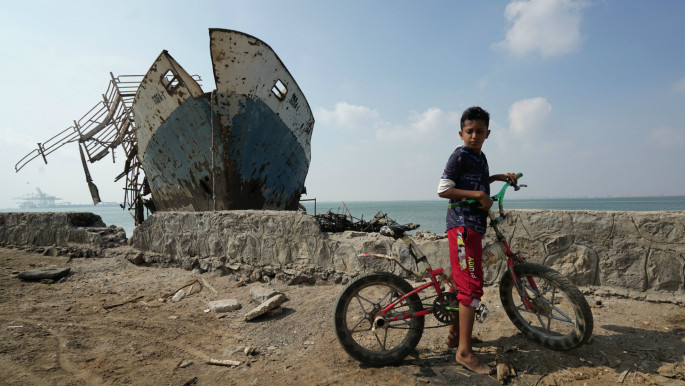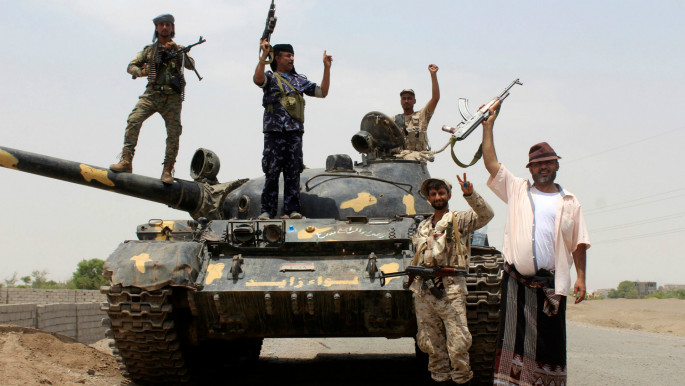Yemen could soon face an environmental catastrophe
Yemen faces no shortage of challenges. The Houthis, Iranian-backed rebels armed with ballistic missiles and drones, have held the capital of Sanaa since 2014. In early August, meanwhile, a well-resourced umbrella organisation of separatist militias began battling what little remains of the Yemeni government for control of Aden, the country's second-largest city.
Given Yemen's descent into a multilayered civil war, few Yemenis have had time to reflect on the environmental issues afflicting the country. Even so, Yemen could soon face an ecological disaster.
In July, the United Nations warned that the Safer FSO, a Yemeni oil tanker in the middle of the Red Sea abandoned since 2015, could explode from a buildup of gases and release over a million barrels of oil into the water, and block maritime trade through the Red Sea, which accounts for up to 10 percent of world trade.
It could also threaten the daily passage of some 5.5 million barrels of oil, contaminate drinking water and damage the marine environment across the Red Sea, the Gulf of Aden and parts of Gulf waters.
While the Houthis sought the UN's assistance at first, they have been delaying access since, requesting guarantees that they will get to keep the Safer's oil reserves.
Experts predict that any oil spill from the Safer will blanket the Red Sea and extend well beyond Yemen, reaching as far as the coasts of Egypt, Eritrea, Saudi Arabia, and Sudan.
 |
Experts predict that any oil spill from the Safer will blanket the Red Sea and extend well beyond Yemen, reaching as far as the coasts of Egypt, Eritrea, Saudi Arabia, and Sudan |  |
"I leave it to you to imagine the effect of such a disaster on the environment, shipping lanes, and the global economy," UN Undersecretary-General for Humanitarian Affairs Mark Lowcock told the UN Security Council.
Despite the concern expressed by the UN and environmental scientists, Yemeni officials remain preoccupied with the day-to-day threat of political violence.
Tawfeeq al-Sharjabi, the Yemeni Deputy Water and Environment Minister, declined to answer questions because he was fleeing Aden amid clashes between the separatists and militias loyal to the Yemeni government.
For his part, an official at the Houthi-affiliated environmental ministry in Sanaa claimed to have no knowledge of the problems with the Safer.
Other Yemeni officials contacted by The New Arab failed to return repeated requests for comment.
 |
|
| Read also: The dangers of war and climate change in Yemen |
"This is a topic the whole world is discussing," said Najib Mohammad Ahmad, an adviser to the Yemeni Water and Environment Ministry.
"Governments, the UN, and specialists – they're all aware of the magnitude of the risk in the event of petroleum leakage."
Past oil spills have devastated the natural environment. Clashes between Iranian and Iraqi forces in the Persian Gulf damaged an oil platform in 1983, pouring 733,000 barrels of oil into the water over the course of several months; the hostilities of the Iran-Iraq War also contributed to slowing the cleanup.
During the Gulf War in 1991, Iraqi strongman Saddam Hussein created the largest oil spill in history by allowing between 380 and 520 million barrels of oil to flow into the Gulf in an attempt to stop American soldiers from launching an amphibious invasion of Iraq.
Though distracted, the Yemeni government appreciates the urgency of addressing environmental issues, but the ongoing conflict has constrained the ability of Yemeni officials to act.
"It is not the first time that warnings of a massive ecological crisis have been triggered by the Yemeni Red Sea Safer oil tanker, a huge oil tanker that could turn into a major worldwide environmental disaster," observed Safia Mahdi, a Sanaa-based journalist.
"The internationally recognised government has made more than one call for the UN to pressure the government of the Houthis in Sanaa to carry out necessary maintenance work for the platform."
 |
It is not the first time that warnings of a massive ecological crisis have been triggered by the Yemeni Red Sea Safer oil tanker, a huge oil tanker that could turn into a major worldwide environmental disaster |  |
In light of the obstacles presented by Yemen's bifurcation and the Yemeni Civil War as a whole, regional and world powers likely have the most power to preempt the ecological disaster that the Safer portends.
Saudi Arabia and the United Arab Emirates, the Yemeni government's two most important benefactors, have expressed their commitment to the natural environment; the Safer also stands to exacerbate Saudi Arabia's own environmental issues.
Likewise, the international community may decide to intervene to forestall an ecological crisis in the Red Sea.
 |
|
| Read also: A life or death battle for Yemen's Aden |
Yemeni officials lament that, even if the international community has a vested interest in helping them handle the dispute over the Safer, they have seen little action from world powers so far.
"The problem is with the UN and in particular the UN Security Council, which just issues resolutions and statements," lamented Ahmad.
"We are in a difficult situation today in Aden, where the intense battles are increasing the suffering of the people."
As the implosion of Yemen's anti-Houthi alliance dominates Western headlines, the Safer has continued to sit marooned in the Red Sea.
All the while, Yemen's growing list of environmental issues –biodiversity loss, deforestation, desertification, extreme weather, and water scarcity – has slid into the background.
In the case of the Safer, however, the consequences will go far beyond Yemen, and the logistical and political complexities of navigating this environmental disaster in the making will demand the involvement of diplomats and scientists across the region.
"The consequences of a catastrophe of this magnitude are unimaginable," concluded Mahdi, "and I believe that the international community, including the UN, is directly responsible."
Austin Bodetti studies the intersection of Islam, culture, and politics in Africa and Asia. He has conducted fieldwork in Bosnia, Indonesia, Iraq, Myanmar, Nicaragua, Oman, South Sudan, Thailand, and Uganda. His research has appeared in The Daily Beast, USA Today, Vox, and Wired.





 Follow the Middle East's top stories in English at The New Arab on Google News
Follow the Middle East's top stories in English at The New Arab on Google News


